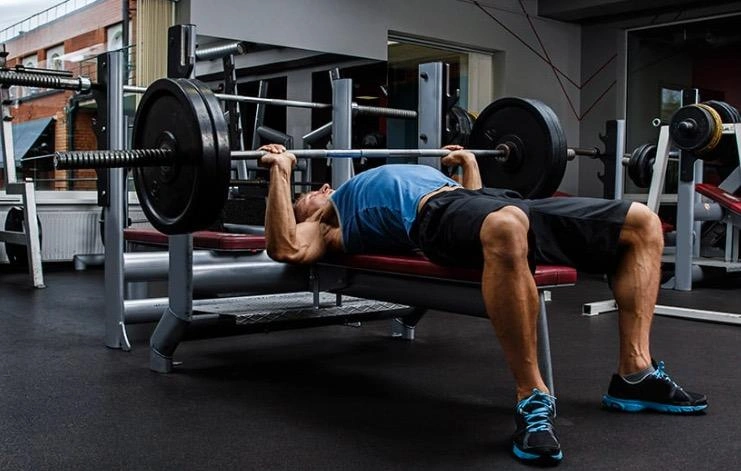In the pursuit of peak physical performance and a chiseled physique, men often focus on intense workouts and meticulous nutrition plans. However, one crucial element is frequently overlooked: sleep. Sleep isn’t just about resting your body; it’s a fundamental pillar of muscle growth, testosterone production, and overall well-being. In this article, we’ll delve into the science behind sleep, exploring its profound impact on your fitness goals and providing actionable strategies to optimize your sleep for maximum gains.
Why Sleep is Essential for Muscle Growth and Fitness

Sleep is not merely a passive state of rest; it’s an active period of recovery and rejuvenation for your body. During deep sleep, your body releases growth hormone, a key player in muscle repair and growth. This hormone also helps regulate metabolism and fat burning, contributing to a leaner physique.
Insufficient sleep can disrupt this delicate hormonal balance, leading to decreased growth hormone production and elevated levels of cortisol, the stress hormone. High cortisol levels can break down muscle tissue and hinder recovery, making it harder to achieve your fitness goals.
Understanding the Sleep Cycle: Your Body’s Overnight Repair Crew
Sleep consists of two main stages: REM (rapid eye movement) sleep and non-REM sleep. REM sleep is associated with vivid dreams and increased brain activity, while non-REM sleep is divided into four stages, each progressively deeper.
During the deep stages of non-REM sleep, your body goes into repair mode, rebuilding and strengthening muscle tissue, synthesizing proteins, and releasing growth hormone. This is why getting enough high-quality sleep is crucial for muscle recovery and growth.
The Impact of Sleep on Exercise Performance

Sleep and exercise performance are intrinsically linked. Adequate sleep enhances various aspects of physical performance, including:
- Strength and Power: Studies have shown that athletes who get sufficient sleep experience increased strength, power, and reaction time.
- Endurance: Sleep deprivation can significantly impair endurance, making it harder to push through challenging workouts.
- Injury Prevention: Adequate sleep is essential for muscle recovery and repair, reducing the risk of injuries during exercise.
Conversely, sleep deprivation can lead to fatigue, decreased motivation, and impaired cognitive function, all of which can negatively impact your workouts and hinder your progress.
Sleep Quality vs. Quantity: Both Matter

While getting enough sleep is crucial, the quality of your sleep is equally important. Deep, uninterrupted sleep is essential for optimal muscle recovery and hormone regulation. To improve sleep quality, establish a consistent sleep schedule, create a relaxing bedtime routine, and optimize your sleep environment by ensuring it’s dark, quiet, and cool.
Practical Strategies for Better Sleep

Improving your sleep hygiene can have a profound impact on your fitness results and overall well-being. Here are some actionable tips:
- Maintain a Regular Sleep Schedule: Go to bed and wake up at the same time each day, even on weekends, to regulate your body’s natural sleep-wake cycle.
- Create a Relaxing Bedtime Routine: Wind down before bed with calming activities like reading, taking a warm bath, or listening to soothing music. Avoid stimulating activities like watching TV or working on your computer.
- Optimize Your Sleep Environment: Ensure your bedroom is dark, quiet, and cool. Invest in blackout curtains, earplugs, and a comfortable mattress and pillows.
- Limit Screen Time Before Bed: The blue light emitted from electronic devices can interfere with sleep. Avoid screens for at least an hour before bedtime.
- Watch Your Diet: Avoid heavy meals, caffeine, and alcohol close to bedtime, as they can disrupt sleep.
- Manage Stress: Chronic stress can lead to sleep problems. Practice relaxation techniques like meditation, deep breathing, or yoga to manage stress and improve sleep quality.
Sleep and Nutrition: A Powerful Duo

What you eat can also influence your sleep quality. Certain foods contain nutrients that promote relaxation and sleep, such as:
- Tryptophan: Found in turkey, chicken, dairy products, and nuts, tryptophan is an amino acid that helps produce melatonin, a sleep-regulating hormone.
- Magnesium: This mineral, found in leafy green vegetables, nuts, seeds, and whole grains, can help relax muscles and promote sleep.
Conversely, avoid large meals, spicy foods, and caffeine before bed, as they can interfere with sleep.
The Bottom Line: Prioritize Sleep for Optimal Fitness and Well-being
Sleep is not a luxury; it’s a necessity for achieving your fitness goals and maintaining optimal health. By prioritizing sleep and implementing these strategies, you’ll not only enhance your muscle growth and recovery but also improve your overall well-being, energy levels, and mental clarity. Remember, a well-rested body is a stronger, healthier, and more stylish body.
Don’t miss out on valuable tips and insights! Sign up for our newsletter to receive the latest in men’s fitness, fashion, and lifestyle advice.









